commentary Commentary
Commentary: A potent political force faces huge challenges as UMNO, PAS join hands
The fight for the Malay heartland is underway with a PAS-UMNO coalition posing a realistic threat to unseating the current Pakatan Harapan government, says RSIS’ Mohamad Nawab Mohamad Osman.
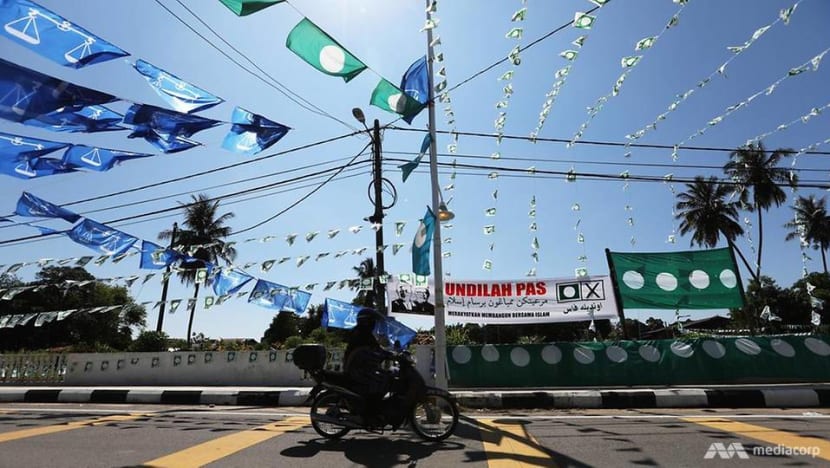
Party banners and flags seen in a village in Kota Baru constituency in Malaysia's state of Kelantan. (Photo: Raj Nadarajan/TODAY)
SINGAPORE: At the recently concluded meeting of the Pan-Malaysian Islamic Party (PAS), a resolution was passed among members to officially support cooperation between PAS and its once bitter rival, the United Malay National Organisation (UMNO).
Cooperation between the two largest Malay parties in the country has grown during a number of by-elections, which saw a victory by UMNO in Cameron Highlands and the wresting of the Semenyih state seat from the ruling Pakatan Harapan (PH).
UMNO Deputy President Mohamed Hasan was quoted as saying that the two parties started dating in the Sungai Kandis by-election, got engaged in Seri Setia, and are now prepared to tie the knot.
The two parties have also agreed on the terms of a charter that will be announced in mid-September. The document would serve as an important reference point for the PAS-UMNO pact.
A PAS-UMNO coalition is likely to be a potent political force with a realistic shot at unseating the current PH government and forming the next government. Its policies, political position and ideology of the alliance could potentially alter the religious-political landscape of Malaysia should it win the next election.
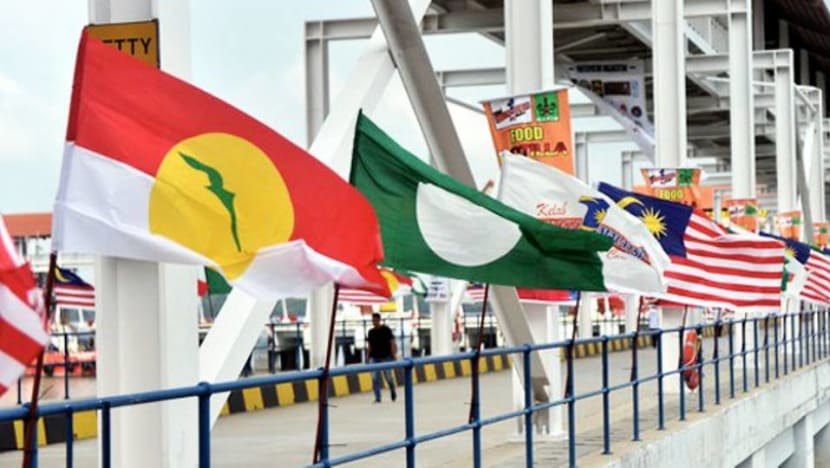
MALAY UNITY AND POLITICAL EXPEDIENCY
Undergirding this decision to formalise the alliance is this huge belief that the two main Malay parties should put aside their long-held enmity in the interest of Malay-Muslim unity.
The argument is that leaders from both parties have decided to focus instead on addressing what they say is the decimation of Islam and Malay rights by the current government.
READ: Malay political unity in Malaysia is but a myth, a commentary
They cite appointment of non-Muslims in a number of key appointment including the Attorney-General.
They also point to the PH government’s initial agreement to ratify the International Convention on the Elimination of All Forms of Racial Discrimination (ICERD) and the Rome Statute, as attempts to clip the wings of the Malay rulers and eliminate policies that have privileged the Malay community.
READ: Malaysia’s anti-ICERD rally a reality check for Pakatan Harapan, a commentary
On a more practical level, leaders of UMNO and PAS are convinced that this alliance could secure an electoral victory in the next general election.
They sense a political vacuum to be filled where Bersatu only obtained less than 30 per cent of the Malay vote. They see the ability to secure the remaining 70 per cent or so as the road to helming the next government in Malaysia.
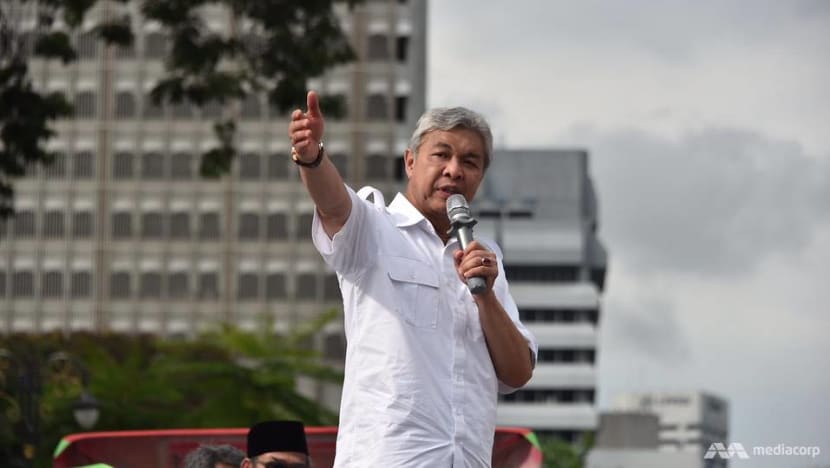
The analysis done by RSIS back this up and suggest that if PAS and UMNO had joined forces during the 2018 elections, they could have secured 118 parliamentary seats.
UMNO is also convinced that the Gabungan Parti Sarawak (GPS) would support an UMNO-PAS coalition government, which would allow the coalition to form a government comfortably.
PRICKLY CHALLENGES AHEAD
The PAS-UMNO coalition would not be without any challenges. First, even if party leadership is convinced, the two parties will need to persuade their members to support a party they each had previously considered to be an enemy.
This is an especially prickly issue for PAS, which has for decades labelled UMNO an un-Islamic party and even referred to UMNO members as infidels.
READ: In Malaysia, where identity politics trumped all for the third time, a commentary
In the northern states of Terengganu and Kelantan where competition between UMNO and PAS have been especially intense, the task would be tougher.
Second, both parties would need to decide on the best candidate for seats. It is believed that both have agreed to allow incumbents to re-run for the same seats.
However, this could invoke the ire of many PAS leaders and members who believe that the party is on the upwards trajectory and could wrestle UMNO held seats in the northern states.
An example of this is the parliamentary seat of Besut currently held by Idris Jusoh, former Menteri Besar of Terengganu and UMNO party member. The PAS candidate, Riduan Mohd Noor, a rising star within the party, lost the seat by less than 5 percentage point and is expected to win the seat given PAS’ strong performance in governing Terengganu.
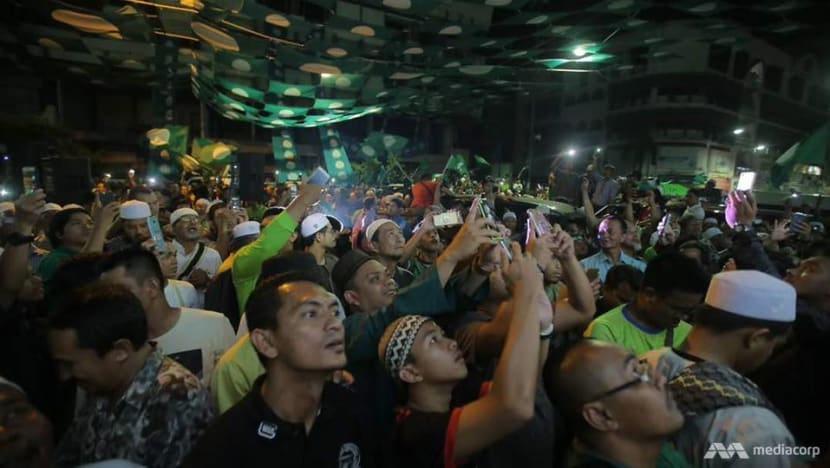
Third, sharp differences could emerge over the fielding of candidates in PH seats where the combined votes for UMNO and PAS exceeded that of PH. It is clear that whichever candidate is fielded stands a pretty good chance of getting into parliament.
This issue is particularly thorny in seats where support levels for PAS and UMNO are roughly similar, such as in Jerlun, Kedah, where the combined support received by PAS and UMNO is 46.6 per cent. Yet PAS and UMNO candidates each received about 23 per cent of the votes.
If these dynamics lead to incumbents holding fast to defend their seats in the next election, this also leaves little room for newcomers or budding hopefuls as far as contesting party strongholds is concerned. Party rejuvenation might take a backseat to securing electoral victory.
READ: The growing opposition assault on the Pakatan government, a commentary
Perhaps the biggest challenge for the coalition is the often openly stated expectation from many PAS members that PAS should be the dominant party within the coalition and should determine the direction that the coalition takes, especially in relation to the position of Islam in Malaysia.
Likewise, PAS members and leaders have said they expect candidates fielded to have certain attributes such as having considerable Islamic knowledge and demonstrate high levels of personal piety.
These expectations could prove to be hurdles hard for the coalition to overcome.
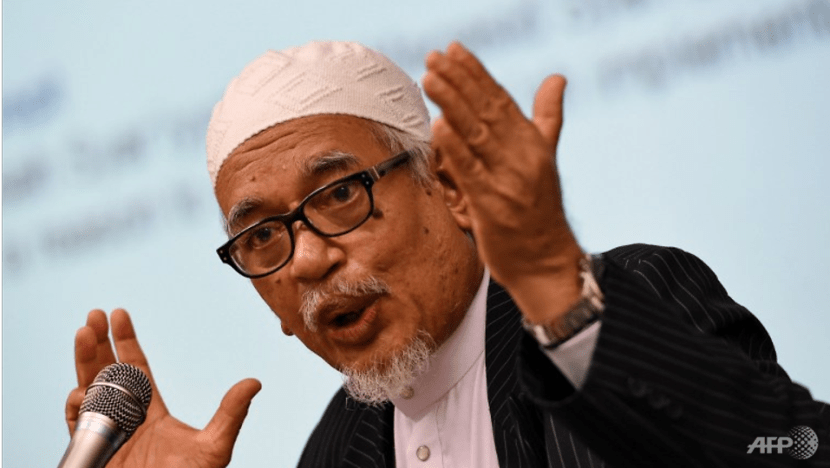
SHIFTING TOWARDS RACIAL AND RELIGIOUS ISSUES
The alliance between PAS and UMNO is likely to shift the political discourse to one where racial and religious issues take precedence.
While more progressive UMNO leaders, such as Khairy Jamaluddin, have stated that UMNO must not lose non-Muslim support even as they embark on this alliance, the focus on winning Malay support would inevitably lead to political posturing involving securing more rights for Malays and the elevation of the role of Islam in governance.
READ: Malaysia goes in search of a more inclusive growth formula, a commentary
For instance, if the alliance is to win power, it is likely that PAS will be allowed to introduce Islamic criminal law in the state of Kelantan.
The last attempt by PAS to do so was when the then UMNO-led government agreed to allow the party to table amendments to Article 355, which would have paved the way for PAS to implement these laws partially. This remains a top priority of the party reiterated by party leaders at its recently concluded annual meeting.
A PAS-UMNO led government is also likely to change the consociationalism model that has long defined the sharing of political power among the different ethnic groups in the country.
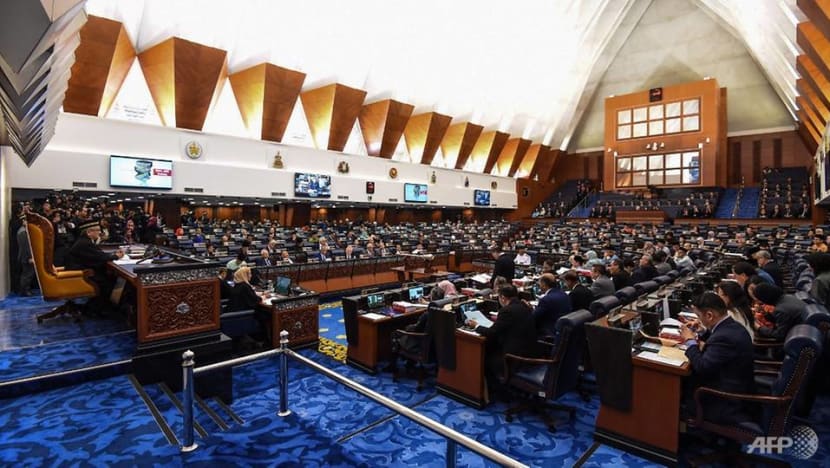
Since 2008, after the disastrous electoral performance of the ruling coalition, the number of non-Malay cabinet ministers were reduced and many were allocated less important ministries in the cabinet.
Under the current government, the spirit of consociationalism has seen equal political representation and best expressed by the appointment of Chinese and Indian ministers in key positions.
But this model is likely to change as a PAS-UMNO government will see a Malay-Muslim government which will only accommodate non-Malays and non-Muslims willing to accept Malay-Muslim dominance.
Dr Mohamed Nawab Mohamed Osman is Assistant Professor with the S Rajaratnam School of International Studies at the Nanyang Technological University.














